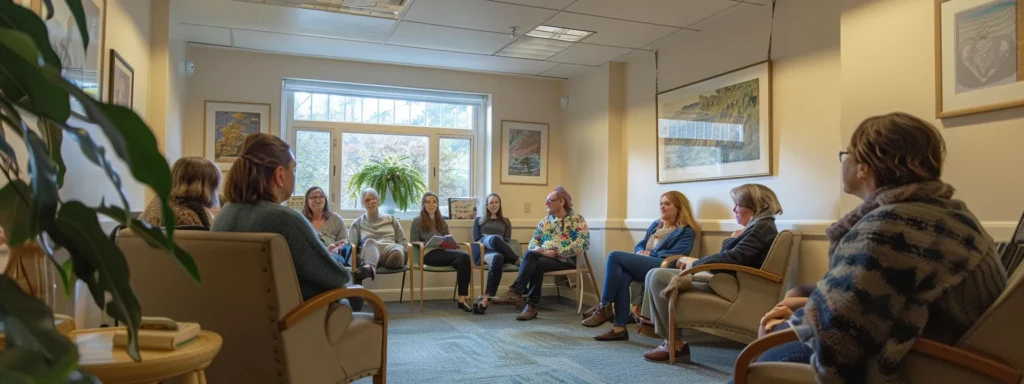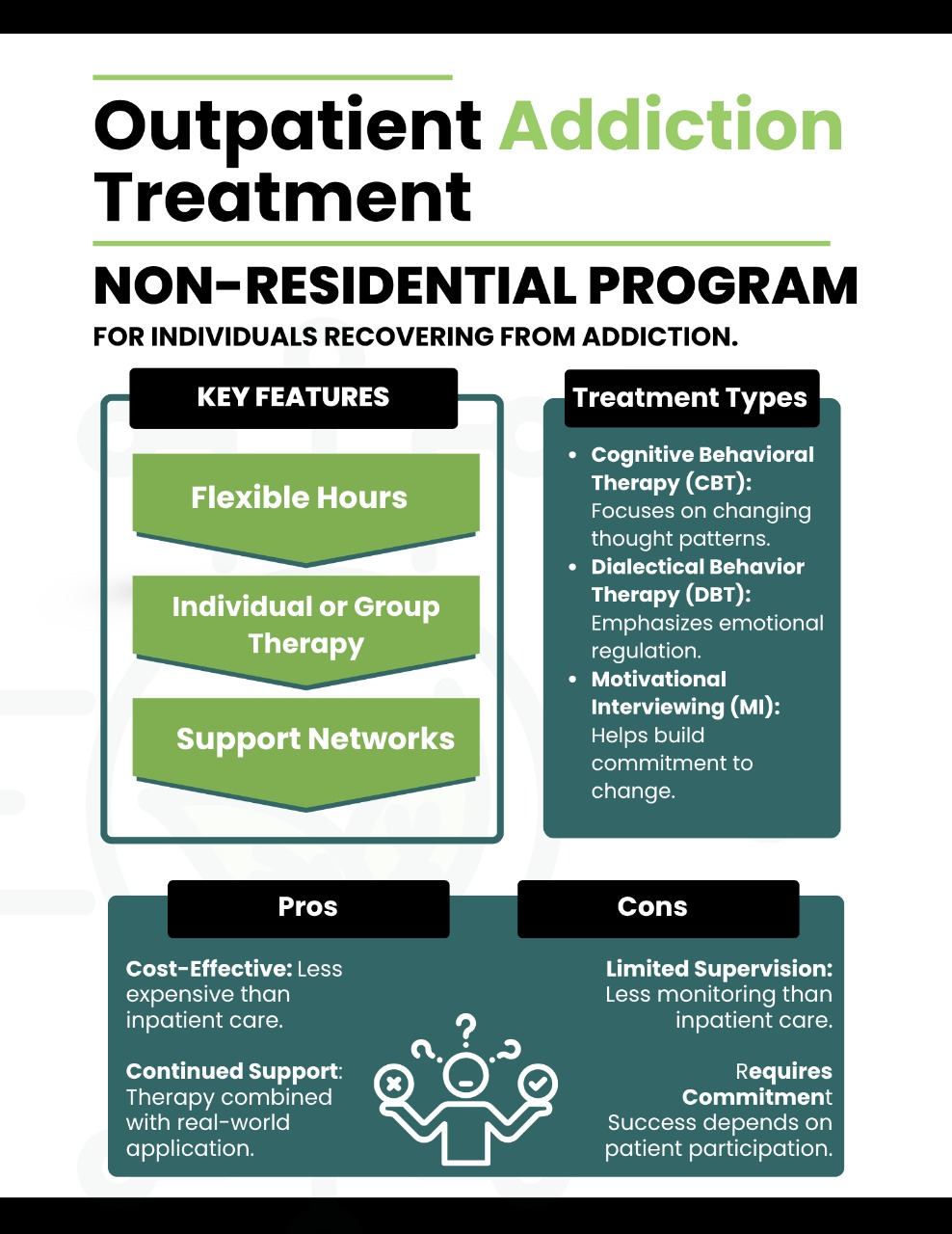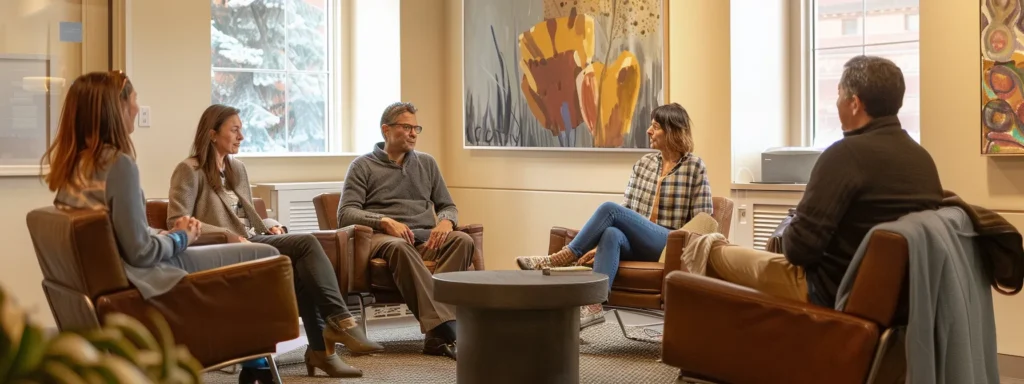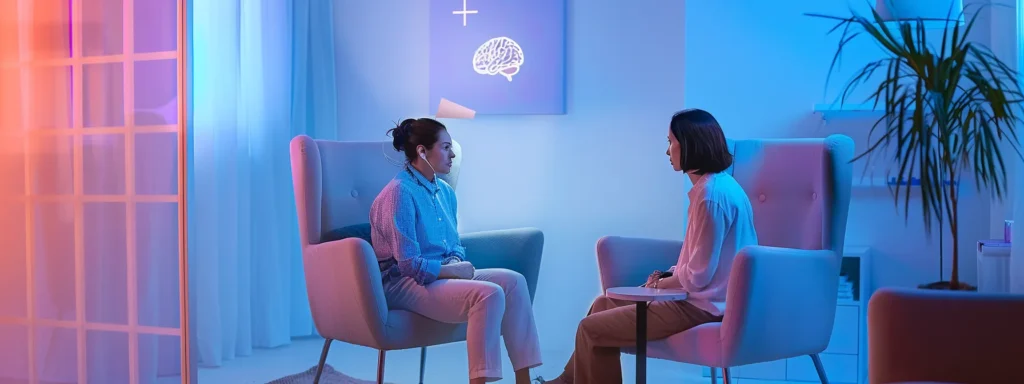
Learning About Outpatient Addiction Treatment in Billerica
Outpatient addiction treatment offers flexibility and individualised care, eliminating the need for hospital stays. Did you know that approximately 60% of people receive outpatient treatment as their main recovery route? That fact alone illustrates how many want to keep things as normal as possible while addressing addiction. Would it surprise you that outpatient programs tend to include counselling, medication management, and peer support? They’re structured to allow people to remain at home, commute, and balance work and family obligations. In Billerica, programs like these enhance community integration. Interested in learning if outpatient is right for you? Let’s learn more about why it might be perfect for you.
The Key Elements of Successful Outpatient Programs
What makes Outpatient Addiction Treatment so effective?
First, licensed clinical counsellors deliver personalized therapy sessions—both one-on-one and in groups. Research indicates that approximately 55% of those who participate improve significantly after 12 sessions. That is a strong statistic.
Does the concept of peer support resonate with you?
Group therapy assists in creating accountability and empathy among those walking similar paths.
Moreover, medication-assisted treatment (MAT) also comes into play, with one study stating a 70% reduction in relapse rates when MAT is used in conjunction with therapy. See evidence at the Substance Abuse and Mental Health Services Administration site.
Balancing Treatment with Daily Life
Can recovery coexist with your daily responsibilities? Absolutely. Outpatient Addiction Treatment in Billerica allows individuals to continue working, attending school, or caring for family. It is estimated that nearly 45% of adults in outpatient programs simultaneously hold part‑time jobs.
Imagine keeping your job and progressing toward recovery—sounds empowering, doesn’t it? Sessions are scheduled around your availability. That flexibility lowers dropout risk by approximately 30%, according to research. This means sticking with the program becomes easier. How would structured evening or weekend appointments improve your recovery journey?
Engaging Therapy Approaches Used
What therapy styles help someone succeed? Cognitive behavioural therapy (CBT) is widely used, showing around 65% effectiveness rate in helping patients change craving patterns. Then there’s motivational interviewing, which boosts treatment engagement by almost 50%.
And, of course, family therapy is also on the menu, with statistics showing 80% of participants commenting on enhanced communication at home.
It’s these choices that make Outpatient Addiction Treatment active and adaptable. You want to know which type might suit you best? Therapists determine your likes and work with you, not for you, to create a treatment plan.
Treating Co-occurring Mental Health Disorders
Did you know that as many as 50% of people receiving addiction care have co-occurring mental illness? It’s normal, not the exception. Billerica outpatient programs treat both substance abuse and disorders such as anxiety or depression at the same time.
Integrated care is distinct from typical programs by aligning care teams—psychiatrists, therapists, and medical professionals—so recovery is complete.
Have you grappled with mental illness while attempting to abstain from substances? Sharing that struggle in treatment can be freeing. This dual‑focus strategy raises recovery rates by around 40%, studies say. And that’s why care integration is so critical.
The Role of Peer Support and Community
How central is community to recovery? Extremely. A lot of outpatient programs incorporate peer‑funded groups such as 12‑step meetings or recovery coaching. Statistics on participation reveal that around 75% of participants feel less alone and more optimistic. That sense of belonging decreases relapse rates by almost 35%. In Billerica, community-based recovery groups organise weekly gatherings that supplement therapy sessions.
Do you think making friends who know what you’ve been through would be a good idea? Networking in such forums builds strength. Peer support isn’t only psychological—it includes practical tips and inspiration from people who’ve gone through what you have.
Monitoring Progress and Success
How do you know you are getting better? Outpatient Addiction Treatment programs usually entail frequent check‑ins, urine tests, and therapy notes to monitor progress. Statistics show that 82% of clients show better goals after six months of regular treatment. Seeing that progress can create motivation. You may be updated on your sobriety days, better sleep, or reduced cravings.
Should monitoring of progress keep you in check? Sure, most clients find it inspiring to see concrete evidence of change. Treatment programs in Billerica utilize client portals and mobile apps, so you can track your progress daily.
Breaking Down Common Barriers to Access
Concerned about cost, transportation, or stigma? Don’t worry, you’re not alone. Most people think outpatient care is costly, but insurance pays for it 100% and sliding-scale fees keep it affordable. A survey of clients found 70% said cost wasn’t a big obstacle. Transportation is also covered: Billerica programs routinely collaborate with area transit or provide telehealth visits.
What if stigma concerns hold you back? Possible, but outpatient care respects your anonymity—visiting evenings or virtual appointments keeps your path private. These options dispel typical barriers and pave the way to significant change.
Life After Treatment: Planning Ahead
What happens after the official outpatient period? Transition plans generally consist of ongoing support systems, relapse prevention measures, and step‑down sessions. Approximately 60% of graduates maintain peer group meetings three months after treatment. And 50% attend regular check‑ups in therapy. Considering a sober life may seem a far cry at present, but step‑down support maintains momentum for recovery.
How would regular phone check‑ins or monthly groups affect self‑confidence? Billerica’s outpatient services send you home with a toolkit—motivational strategies, identification of triggers, emergency contacts, and daily routine plans—that keeps the gains going long-term.
Getting Started in Billerica
Ready to learn more about Outpatient Addiction Treatment around Billerica? Contact licensed professionals providing free consultations. Those consultations last approximately 30 minutes and determine your needs. Early intervention can increase participation by 20%, national data suggests. You can look into telehealth choices, flexible scheduling, and financial help. The beginning can be difficult, but once you call, you become part of a community that cares about your progress. Will you take the first step? Go and locate certified outpatient facilities in Billerica. Your journey to recovery begins now.






